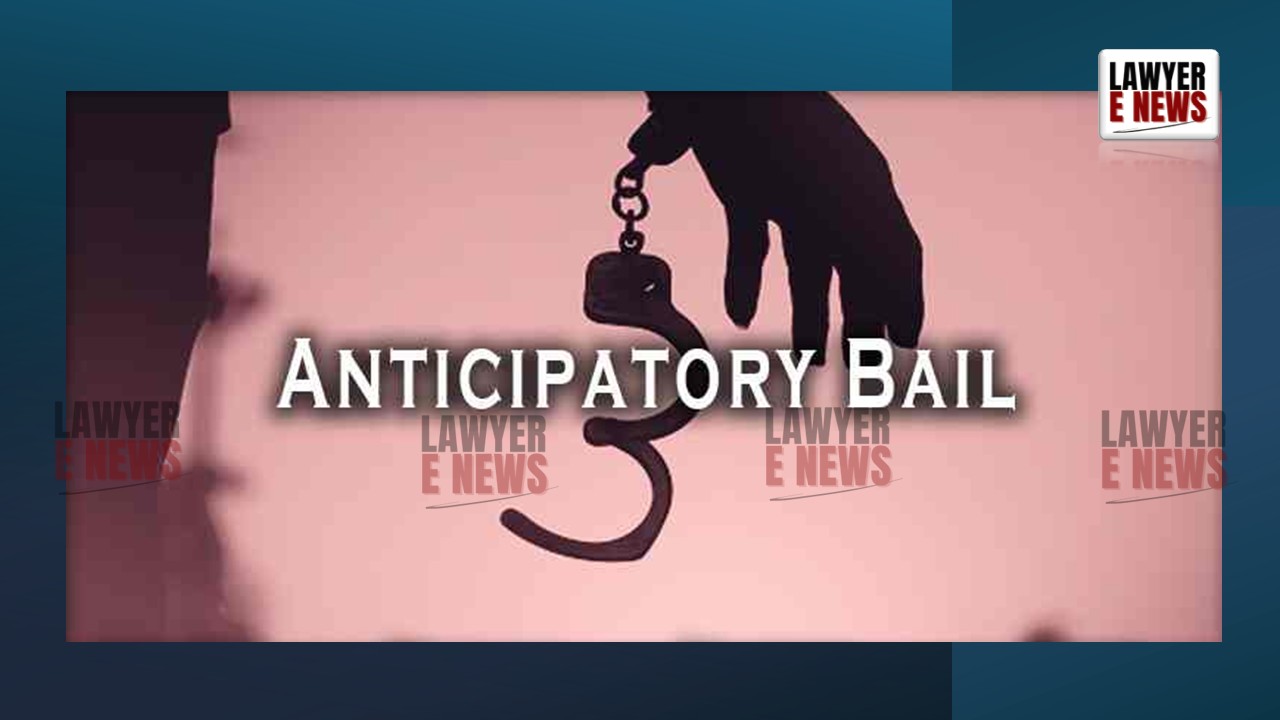-
by Admin
15 February 2026 5:35 AM



Andhra Pradesh High Court, presided over by Hon’ble Dr. Justice V.R.K. Krupa Sagar, dismissed 18 anticipatory bail petitions under Section 482 of the Bharatiya Nagarik Suraksha Sanhita, 2023 (BNSS). These petitions were filed by various accused persons in connection with Crime No. 137 of 2023 registered at Gannavaram Urban Police Station, Krishna District. The Court held that the anticipatory bail petitions were not maintainable due to the jurisdictional bar imposed under Sections 18, 18A, and 14A of the Scheduled Castes and Scheduled Tribes (Prevention of Atrocities) Act, 1989 ("SC/ST Act").
The judgment, addressing procedural and substantive legal issues, emphasized that anticipatory bail applications in cases involving offenses under the SC/ST Act must be filed before Special or Exclusive Special Courts, as per Section 14A of the Act. The High Court clarified that its role in such matters is confined to appellate jurisdiction.
"Section 14A Bars Concurrent Jurisdiction for Anticipatory Bail under the SC/ST Act": High Court Clarifies
The High Court underlined the mandatory jurisdictional framework of Section 14A of the SC/ST Act, which grants exclusive jurisdiction to Special Courts and Exclusive Special Courts for anticipatory bail applications. Justice V.R.K. Krupa Sagar stated:
“The concurrent original jurisdiction of the High Court to entertain anticipatory bail petitions, as provided under Section 438 of the Code of Criminal Procedure, 1973, is expressly excluded under Section 14A of the SC/ST Act. The High Court's jurisdiction is restricted to appellate powers over orders passed by Special Courts or Exclusive Special Courts.”
The Court further emphasized that the term "bail" under Section 14A encompasses both regular and anticipatory bail, thereby excluding the High Court from entertaining anticipatory bail applications directly. It observed:
"Applications for bail or anticipatory bail can only be filed before the Special Court or Exclusive Special Court. An order granting or refusing such reliefs can only be challenged before this Court through an appeal under Section 14A of the Act."
The FIR in Crime No. 137 of 2023 was registered following an alleged attack on February 20, 2023, at the Telugu Desam Party office in Gannavaram. The complaint alleged that members of the YSR Congress Party, including the accused, attacked the party office wielding sticks, stones, and petrol bombs. It was also alleged that the attackers caused arson and destruction of property, while also hurling caste-based abuses at the complainant, who belongs to the Madiga caste, a Scheduled Caste.
Initially, the FIR was registered under IPC provisions (Sections 143, 147, 148, 435, and 506 read with 149) and Sections 3(1)(r) and 3(1)(s) of the SC/ST Act. During the investigation, additional provisions, including Sections 436, 450, and 452 IPC and Sections 3(2)(v) and 3(2)(va) of the SC/ST Act, were added. The petitioners contended that the allegations were politically motivated and challenged the inclusion of the SC/ST Act provisions as being fabricated.
"Prima Facie Case Necessary to Bar Anticipatory Bail Under Section 18": Petitioners' Contentions
The petitioners, represented by various counsels, argued that the bar on anticipatory bail under Sections 18 and 18A of the SC/ST Act is not absolute. They contended that if a prima facie case under the SC/ST Act is not made out, the prohibition under Sections 18 and 18A would not apply. Citing the Supreme Court’s ruling in Shajan Skaria v. State of Kerala [2024 LiveLaw (SC) 601], the petitioners argued:
“If the allegations in the FIR do not disclose the necessary ingredients of offenses under the SC/ST Act, the jurisdictional bar on anticipatory bail would not apply, and the High Court retains its power to grant pre-arrest bail.”
The petitioners also raised concerns over alleged procedural lapses, including the delayed registration of the FIR, political vendetta, and the subsequent inclusion of additional penal provisions during the investigation.
High Court Rejects Petitioners’ Arguments, Upholds Jurisdictional Restrictions
The High Court rejected the petitioners' contention, holding that it cannot examine the merits of the allegations or the applicability of the SC/ST Act at the anticipatory bail stage. Justice Krupa Sagar noted:
“The contentions regarding political vendetta, delay in FIR registration, and procedural lapses are matters to be addressed during trial or through appropriate proceedings. This Court cannot bypass the jurisdictional restrictions under Section 14A of the SC/ST Act.”
On the issue of delayed FIR registration and subsequent addition of penal provisions, the Court held:
“Investigation is a voyage to discover the truth. It is within the investigative agency's prerogative to add appropriate penal provisions based on evidence collected during the investigation. The initial absence of certain provisions in the FIR does not invalidate their later inclusion.”
The Court further clarified that procedural irregularities in investigation, if any, can be challenged before the appropriate forum, but do not form a basis for anticipatory bail under the SC/ST Act.
The High Court referred to Section 18A of the SC/ST Act, which was introduced through the 2018 amendment to clarify the procedural safeguards in cases under the Act. It reiterated that no preliminary inquiry is required for the registration of an FIR under the SC/ST Act, and the investigating officer does not need prior approval to arrest an accused.
Addressing the petitioners' argument that the inclusion of SC/ST Act provisions was unwarranted, the Court emphasized:
“The investigating agency is well within its rights to include additional penal provisions during the investigation if the evidence so warrants. The addition of Sections 3(2)(v) and 3(2)(va) of the SC/ST Act is neither irregular nor beyond the scope of investigation.”
“Petitioners are at liberty to approach the appropriate Special or Exclusive Special Court for anticipatory bail. Any observations made herein are confined to these petitions and shall not affect the merits of the case.”
The High Court also directed that any future petitions for anticipatory bail in such cases must strictly comply with the procedural framework under the SC/ST Act.
Date of Decision: January 6, 2025
